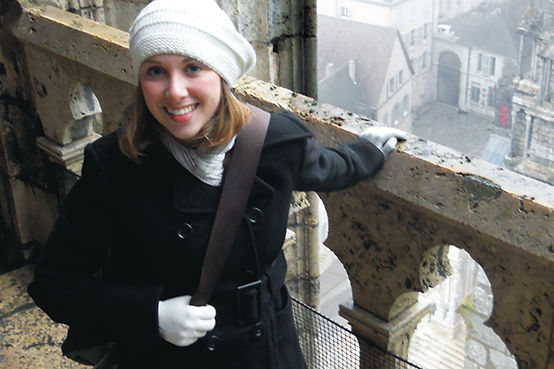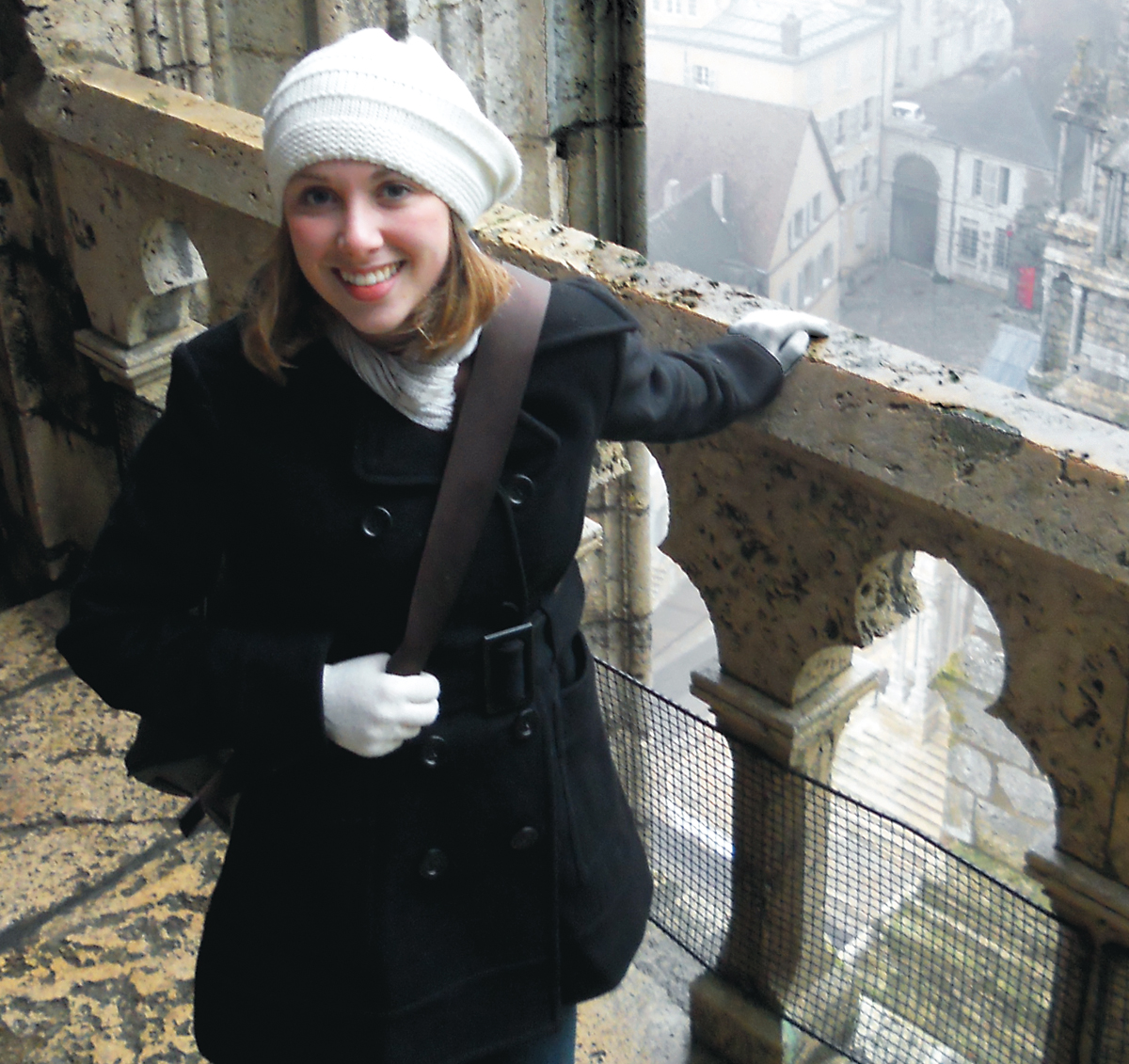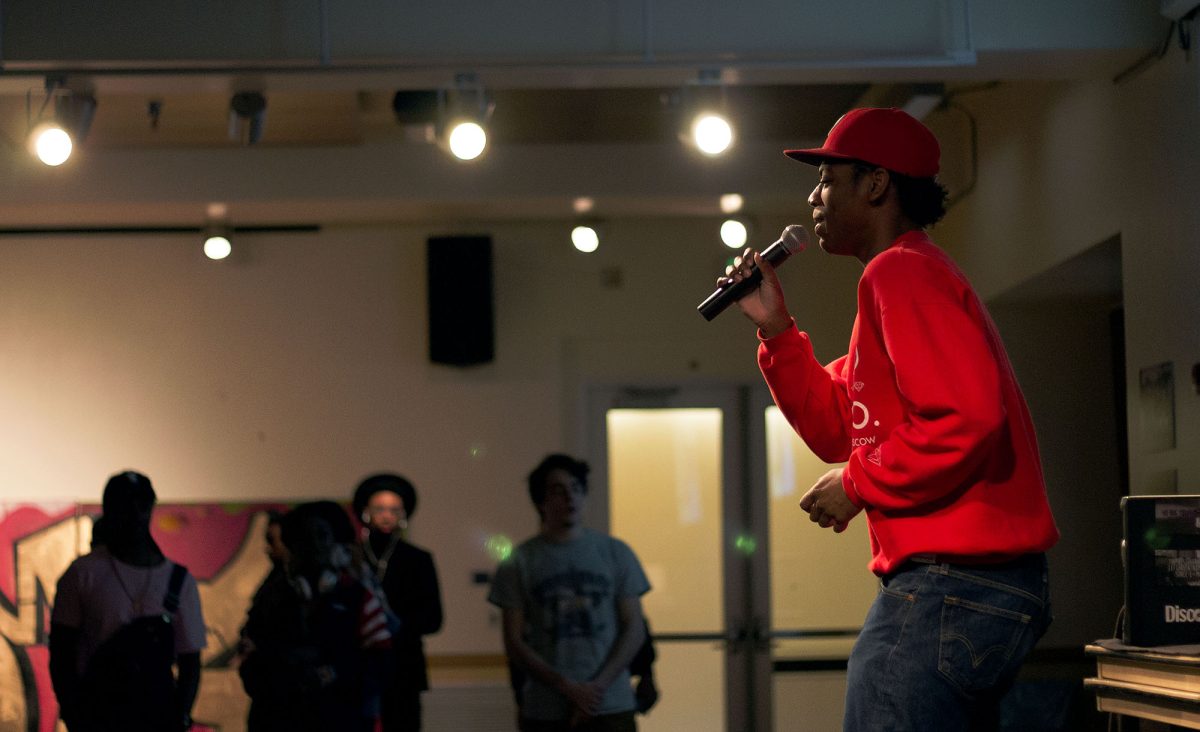Story and Photo by Elliott Kennedy
Nothing had gone as planned. For months, I had diligently organized my first study abroad trip. I skipped midnight fast food runs with friends to review subjunctive conjugations. I stayed up late to read travel books about the Loire Valley. I even changed the language setting on my iPod to Français so I could pick up a few more vocabulary words. But none of these preparations would matter, as I discovered soon after departing for France in summer 2009.
My plane landed in Charles de Gaulle Airport 30 minutes behind schedule. Because of the cramped quarters in coach and the overly affectionate passenger who used me as a pillow for most of the trip, my left shoulder had fallen asleep. In the commotion of reinvigorating my appendages and grabbing my luggage, I left behind my Larousse French dictionary. Then while trying to navigate from the airport to Montparnasse Station, I became so utterly lost that I missed my train to Angers, the city I would call home for the next month. When I finally boarded the next train, it was delayed on the tracks because of flooding. By the time I arrived at 11:30 that night, all I’d had to eat that day was a king-size bag of peanut M&M’s and a bottle of Aquafina. I was exhausted, hungry, and in no mood to struggle with a foreign language.
Too bad.
The minute I stepped onto the platform I was drowning in the sounds of native French. Each conversation was so advanced that it kicked my six years worth of studying right in the derrière.
Newly terrified that I had signed up for the most stressful summer ever, I began searching for my host family. Across the platform, I spotted my host mother waving like an air traffic controller. With her was an American friend of mine who was also studying abroad and had arrived the day before. I was jet lagged and disheveled from my 14-hour nap in coach; my friend, rested and cheery, made me look even worse by comparison. Worn out as I was, the thought crossed my mind to accidentally drop my 40-pound suitcase on her foot just to even the playing field.
But there was no time to linger on my frustration. My host mother enveloped me in a hug and spouted a flood of foreign greetings: “Salut, ma petite fille! Le voyage, c’était bon j’espère? La famille ne peut pas attendre de te rencontre. Donc, allons-y!”
I searched my brain for recognizable words. Je is a proper noun, right? Do I use the tu or vous form? Did she even speak in full sentences? Everything she said sounded like one long word! I simply smiled, hoping it would pass for comprehension.
The insecurities I felt about my language skills continued at my host family’s house. My host father, after welcoming us at the front door in similarly rapid and unintelligible French, led the way to the dining room. Here I saw three young men (my host brothers) standing around a gloriously laden table.
I learned that my host mother, an elegant woman who can only be described as a cross between Coco Chanel and Martha Stewart, had spent the day preparing the elaborate meal before me. Cheese platters, warm baguettes, and rich red wine filled every inch of the table and shortly thereafter, every ounce of my stomach. Grateful for my host family’s generosity but too stuffed to eat another bite, I told them, “Merci, mais je suis plein.” Thank you, but I am full.
Well, that’s what I thought I said.
As soon as the words were out of my mouth, the entire room fell silent. My host father’s fork hovered midway between his plate and his open mouth. My host brothers stared at their plates with such intensity I almost expected their eyes to bore holes through the flowered china. My host mother began to slowly remove all of the wine bottles from the table. Only my fellow American made a sound.
“‘J’ai mangé bien’ means ‘I’m full,’” she whispered to me. “What you just said can also mean, ‘I’m pregnant.’”
Horrified by my mistake, I quickly yelped, “Non! J’ai mangé bien! No! I am full of food!” But they continued to stare. Blushing and flustered, I closed my eyes, buried my head in my hands, and desperately tried to hold back tears of embarrassment.
And then I heard a snort.
I peeped out from between my fingers to see my host father raise his glass of wine and laugh. He chortled. He snickered. He guffawed. The room was bright, almost vibrating, with the sound of his laughter. Then everyone else burst into hysterics, including me.
Yes, I was embarrassed. But I would never redo that moment. It was a verbal boo-boo that taught me to simply laugh at myself. It was a faux pas that broke the ice and began a lasting relationship with my French family. It was an amusing anecdote that encouraged me to return to France two years later on another overseas adventure. Even today, that mortifying incident manages to creep into conversation. A recent Skype call with my host brother ended with, “Talk to you soon and say bonjour to the baby for me.”
Categories:
From Faux Pas to Friendship
April 2, 2012

From Faux Pas to Friendship
0
More to Discover














